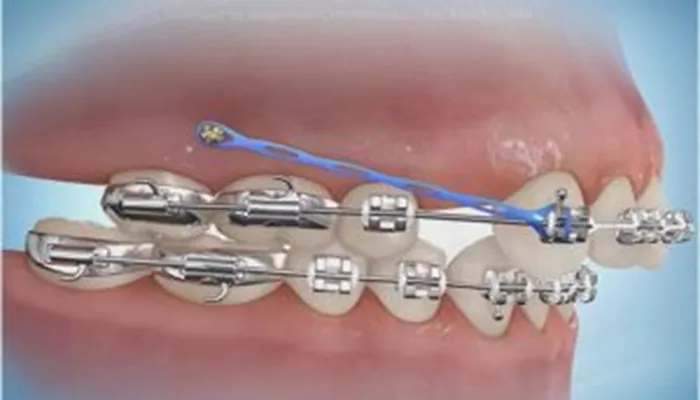When it comes to replacing missing teeth, two of the most common options are dental implants and dentures. Both have their advantages and disadvantages, and cost is often a significant factor in the decision-making process. This article will explore the costs associated with dental implants and dentures, helping you understand which option might be more affordable for your situation.
Understanding Dental Implants And Dentures
What Are Dental Implants?
Dental implants are artificial tooth roots made of titanium or other biocompatible materials. They are surgically placed into the jawbone and serve as a sturdy foundation for replacement teeth. The process typically involves several steps:
Consultation: A dentist evaluates your oral health and discusses your options.
Surgery: The implant is placed into the jawbone.
Healing Period: Osseointegration occurs, where the bone grows around the implant, providing stability.
Abutment Placement: An abutment is attached to the implant to hold the crown.
Crown Placement: A custom-made crown is placed on the abutment.
What Are Dentures?
Dentures are removable appliances that replace missing teeth. They can be complete (for those who have lost all their teeth) or partial (for those who still have some natural teeth). Dentures consist of:
Acrylic Base: This mimics the gums.
Artificial Teeth: These are made of plastic or porcelain and are attached to the base.
Initial Cost Comparison
When considering the initial costs of dental implants versus dentures, several factors come into play.
Cost of Dental Implants
The cost of dental implants can vary widely based on several factors, including:
Number of Implants Needed: The more implants you need, the higher the cost.
Location: Prices can vary by region and dental practice.
Additional Procedures: Some patients may require bone grafting or sinus lifts, which can add to the overall cost.
On average, a single dental implant can cost between $3,000 and $4,500. This includes the implant, abutment, and crown. If additional procedures are needed, the total cost can rise significantly.
Cost of Dentures
The cost of dentures is generally lower than that of dental implants. The price can depend on:
Type of Dentures: Complete dentures tend to be more expensive than partial dentures.
Material Used: High-quality materials will increase the cost.
Customization: Customized dentures that fit better and look more natural can be more expensive.
On average, complete dentures can cost between $1,000 and $3,000, while partial dentures may range from $500 to $1,500.
Long-Term Cost Considerations
While the initial costs are important, it’s also essential to consider the long-term costs associated with each option.
Longevity of Dental Implants
Dental implants are designed to be a permanent solution for missing teeth. With proper care, they can last a lifetime. This durability can make them a cost-effective choice in the long run, as they typically do not require replacement or extensive maintenance.
Maintenance Costs
Regular Check-Ups: Routine dental visits are necessary to ensure the health of the implants.
Cleaning and Care: Implants require the same level of care as natural teeth, including brushing and flossing.
Longevity of Dentures
Dentures, while initially less expensive, may need to be replaced or adjusted over time. Factors that can affect the longevity of dentures include:
Wear and Tear: Dentures can wear down and may need to be replaced every 5 to 10 years.
Bone Loss: Over time, the jawbone may shrink, causing dentures to fit poorly. Adjustments or replacements may be needed.
Maintenance Costs
Cleaning Solutions: Dentures require special cleaning solutions and tools.
Regular Adjustments: As the jawbone changes, dentures may need to be adjusted, which can incur additional costs.
Insurance Coverage
Dental Insurance for Implants
Many dental insurance plans offer limited coverage for dental implants. However, coverage can vary significantly. Some plans may cover part of the cost of the implant, while others may not cover implants at all. It’s essential to check your specific plan for details.
Dental Insurance for Dentures
Dentures are often covered more extensively by dental insurance plans. Many plans will cover a portion of the cost of complete or partial dentures. However, the level of coverage can vary, so it’s important to review your policy.
Other Factors to Consider
Comfort and Functionality
When deciding between implants and dentures, comfort and functionality should also be considered.
Dental Implants: These provide a stable and secure fit, allowing for normal chewing and speaking without fear of slipping.
They also help maintain jawbone density, preventing the sunken appearance that can occur with missing teeth.
Dentures: While modern dentures can fit well and look natural, they may not provide the same level of stability as implants. Some patients may experience discomfort or difficulty chewing certain foods.
Aesthetic Considerations
Both dental implants and dentures can enhance the appearance of your smile. However, dental implants often provide a more natural look and feel since they are anchored directly into the jawbone. Dentures, while aesthetically pleasing, may not always replicate the look of natural teeth as effectively.
Lifestyle Considerations
Your lifestyle and personal preferences play a significant role in your decision. Consider the following:
Maintenance: Implants require daily oral hygiene, while dentures require specific cleaning routines.
Diet: If you enjoy hard or crunchy foods, implants may be a better choice, as they allow for normal chewing.
Conclusion
In summary, the choice between dental implants and dentures involves several factors, including initial costs, long-term expenses, insurance coverage, comfort, aesthetics, and lifestyle.
Ultimately, while dentures may appear cheaper initially, dental implants can be more cost-effective over time due to their durability and lower maintenance requirements. It’s essential to consult with a dental professional to evaluate your specific situation, discuss your options, and determine the best choice for your oral health and budget.
Related topics:

